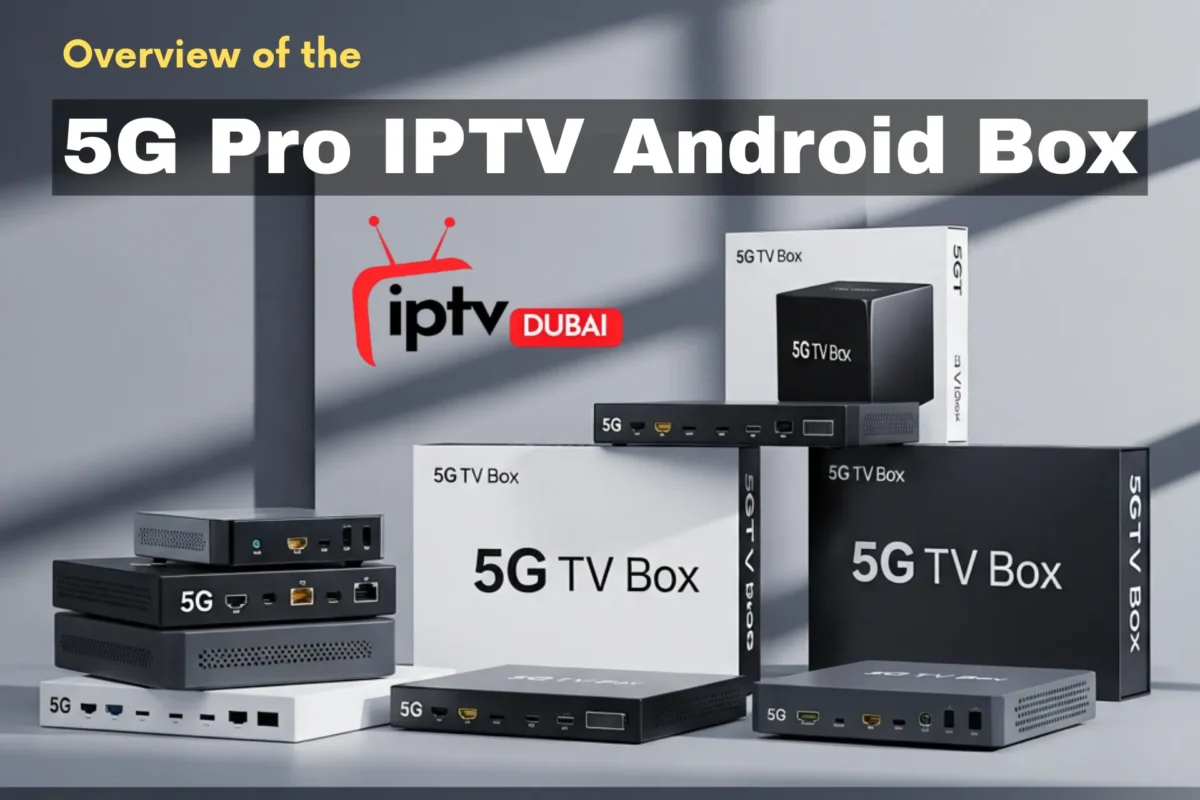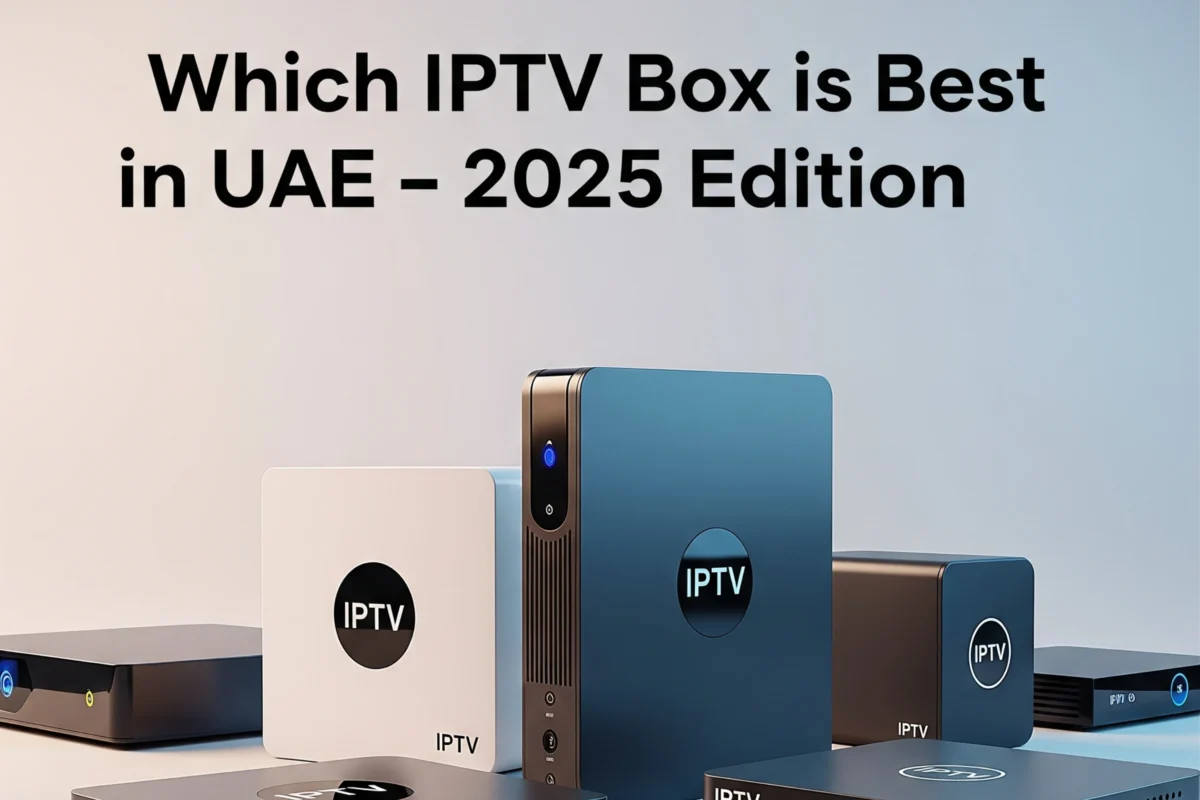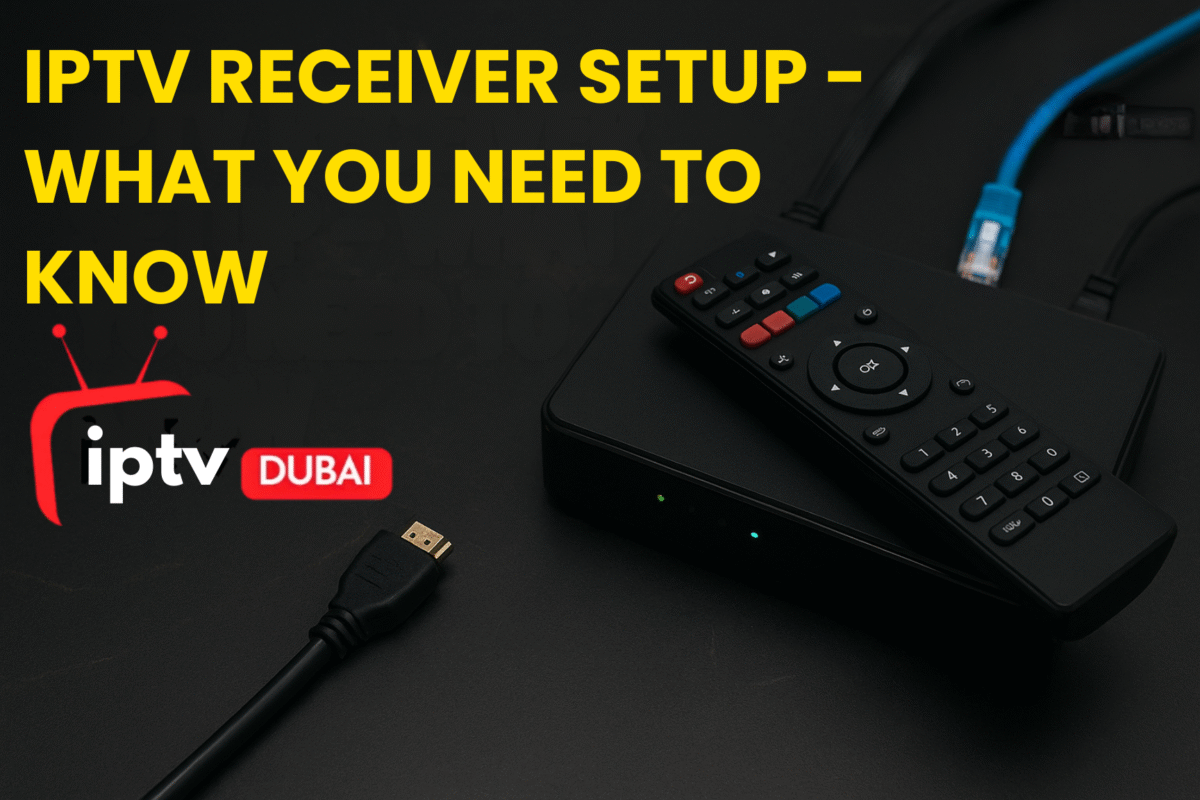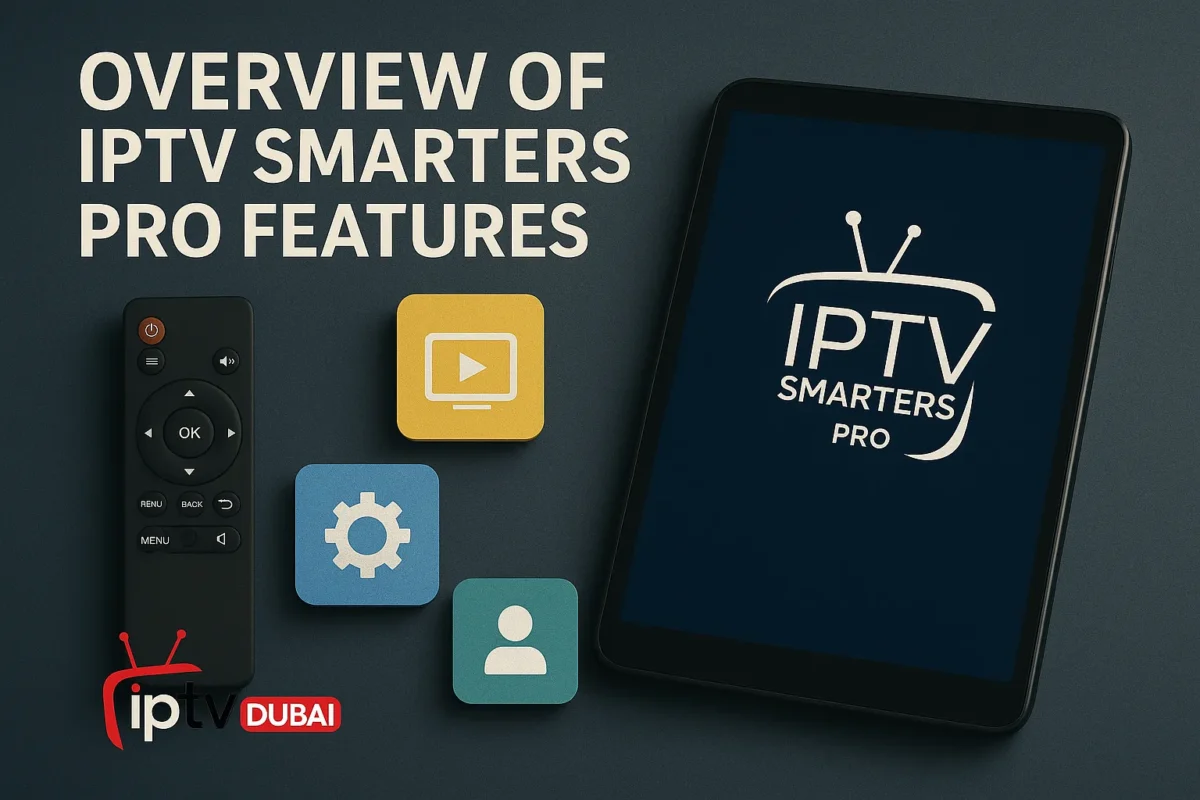Blog
5G IPTV UAE – Should You Upgrade in 2025

5G IPTV Key Benefits and Why You Should Consider Upgrading in 2025 in the UAE
As 5G technology continues to revolutionize internet connectivity worldwide, the UAE is at the forefront of adopting this next-generation network. One of the most exciting applications of 5G is in IPTV (Internet Protocol Television), promising faster speeds, better streaming quality, and enhanced user experiences. If you’re considering upgrading your entertainment setup in 2025, this guide will help you understand what 5G IPTV is, its benefits, technical requirements, and whether it’s the right choice for you.
The Rise of 5G Technology in UAE
Instruction: Introduce the rapid development and deployment of 5G networks in the UAE, emphasizing how this technology is transforming digital services, including IPTV. Highlight government initiatives and telecom providers accelerating 5G adoption.
The UAE has rapidly embraced 5G technology, with major telecom operators rolling out extensive 5G coverage across cities and urban areas. This ultra-fast network offers significantly lower latency and higher bandwidth compared to 4G, enabling seamless streaming, gaming, and smart home integrations. As 5G becomes more accessible, IPTV services are evolving to leverage these capabilities, offering viewers a superior entertainment experience.
What is IPTV?
Instruction: Define IPTV and explain its basic concept. Provide context for readers unfamiliar with IPTV technology.
IPTV, or Internet Protocol Television, is a method of delivering television content over the internet rather than traditional satellite or cable networks. It allows users to stream live TV channels, movies, and on-demand content directly to their devices using an internet connection.
Definition and Features of IPTV
Instruction: Detail the core features of IPTV, such as live streaming, video on demand (VOD), catch-up TV, and interactive services.
IPTV offers a range of features, including live broadcasts, access to a vast library of on-demand movies and shows, catch-up TV that lets viewers watch missed programs, and interactive options like pause, rewind, and fast-forward. These features provide a flexible and personalized viewing experience.
How IPTV Differs from Traditional Cable TV
Instruction: Compare IPTV with traditional cable TV, focusing on delivery methods, content flexibility, and user control.
Unlike traditional cable TV, which transmits signals via coaxial cables or satellite, IPTV uses Internet protocols to deliver content. This allows for greater flexibility, such as watching content on multiple devices, accessing international channels easily, and enjoying interactive features that cable TV cannot offer.
Benefits of 5G IPTV
Instruction: Explain how 5G enhances IPTV services, focusing on speed, reliability, and user experience improvements.
The integration of 5G technology with IPTV brings numerous benefits that can transform your viewing habits.
Flexibility and On-Demand Content
Discuss how 5G enables smoother access to on-demand content and multi-device streaming.
With 5G’s high-speed connectivity, users can stream high-quality content instantly without buffering. This flexibility allows for seamless viewing on smartphones, tablets, smart TVs, and other devices, anytime and anywhere.
Cost-Effectiveness and Access to International Channels
Highlight the affordability of IPTV subscriptions compared to cable and the availability of diverse international content.
5G IPTV services often come at a lower cost than traditional cable subscriptions, with packages that include a wide range of international channels, catering to the UAE’s multicultural population.
Enhanced Streaming Quality and Reliability
Emphasize improvements in video resolution, reduced latency, and stable connections due to 5G.
5G’s low latency and high bandwidth support Ultra HD (4K and beyond) streaming with minimal interruptions, providing a cinema-like experience at home.
Integration with Smart Home Solutions
Explain how 5G IPTV can connect with smart home devices for a unified entertainment ecosystem.
5G IPTV can seamlessly integrate with smart home systems, allowing voice control, automation, and synchronized content across multiple devices, enhancing convenience and interactivity.
Technical Specifications of 5G IPTV Devices
Instruction: Provide an overview of the hardware needed to fully utilize 5G IPTV services.
To enjoy 5G IPTV, compatible devices with specific technical capabilities are essential.
Overview of the 5G Pro IPTV Android Box
Describe popular 5G IPTV Android boxes available in the UAE market, focusing on features and usability.

The 5G Pro IPTV Android Box is a popular device that supports 5G connectivity, UHD streaming, and comes preloaded with IPTV Smarters and other apps. It offers easy setup and a user-friendly interface tailored for IPTV users.
Importance of UHD Resolution and RAM/ROM Specifications
Explain why high resolution and sufficient memory are critical for smooth IPTV performance.
Devices with UHD (4K) resolution support deliver crisp, clear images, while ample RAM and ROM ensure smooth multitasking and storage of apps and content, preventing lag during streaming.
Challenges and Limitations of IPTV Infrastructure
Instruction: Address current challenges in IPTV adoption related to infrastructure and connectivity.
Despite its advantages, IPTV faces some hurdles that users should be aware of.
Current Infrastructure Challenges
Discuss issues like inconsistent network coverage, server reliability, and regional restrictions.
Some areas may still lack robust 5G coverage, leading to inconsistent streaming quality. Additionally, server downtimes or overloaded networks can affect IPTV performance.
Role of Reliable Internet Connections
Stress the importance of stable and fast internet connections for optimal IPTV experience.
A reliable internet connection is crucial for uninterrupted IPTV streaming, especially when using high-definition content or multiple devices simultaneously.
Comparing IPTV and Traditional Cable TV
Instruction: Provide a balanced comparison to help readers understand the pros and cons of each.
IPTV vs. Traditional Cable TV: User Experience
Compare interface usability, content variety, and interactive features.
IPTV offers a more interactive and customizable user experience with on-demand content and multi-device support, whereas cable TV provides a more static channel lineup and limited interactivity.
Cost Comparison between IPTV and Cable TV
Analyze subscription costs, installation fees, and value for money.
IPTV subscriptions are generally more affordable and flexible, with no installation fees, unlike cable TV which may involve higher upfront costs and long-term contracts.
Considerations for Upgrading to 5G IPTV
Instruction: Guide readers on factors to evaluate before making the switch.
Future-Proofing Entertainment Systems
Instruction: Explain how upgrading to 5G IPTV prepares users for upcoming technological advancements.
Investing in 5G IPTV ensures compatibility with future streaming standards, smart home integrations, and evolving content delivery methods.
Evaluating Needs and Preferences
Instruction: Encourage readers to assess their viewing habits, device compatibility, and budget before upgrading.
Consider your content preferences, device ecosystem, internet speed, and budget to determine if 5G IPTV is the right upgrade for your home entertainment setup.
Conclusion:
Upgrading to 5G IPTV in the UAE offers exciting possibilities for enhanced streaming quality, flexibility, and integration with smart technologies. However, it’s essential to weigh the benefits against infrastructure limitations and personal needs. By understanding the technology and evaluating your options, you can make an informed decision to elevate your entertainment experience in 2025 and beyond.



















